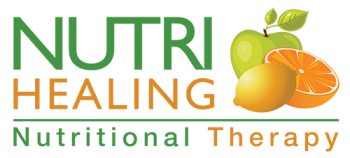Pre-Menstrual Syndrome (PMS) - February 2009
What is PMS?
Pre-menstrual syndrome or what used to be known as (pre-menstrual tension) is used to describe a collection of mental and physical symptoms which typically occur from a week to a few days before menstruation begins and tend to cease shortly after the arrival of the period. Mostly commonly occurs in women from the age of 14 to 50 years of age.
What are the Symptoms?
Up to 150 different symptoms have been reported and personality changes associated with this time of the month can be mild to severe, from feeling slightly irritable to literally becoming a different person.
The most common symptoms associated with PMS are:
- 80% experience irritability, anxiety, abdominal cramps
- 60% report cravings for sweets and binge eating
- 40% report bloating, weight gain and fluid retention
- 5-20% describes depression
- Mood swings, breast tenderness, fatigue, headaches, insomnia, dizziness or fainting, crying, alternating constipation and diarrhoea, allergic complaints and skin irritations are also cited
There are 4 common groupings of symptoms
- Anxiety - This includes crying without a valid reason, irritability, physical and verbal abusiveness, and sudden mood swings.
- Cravings - This can include food cravings such as those for sweets and chocolate, dairy products, and alcohol. General food cravings are very common with PMS.
- Heaviness and Headaches - Fluid retention has a strong tendency to lead to headaches and migraines. Brest tenderness and abdominal bloating along with weight gain also fit into this category.
- Depression - Including symptoms such as confusion, forgetfulness, clumsiness, paranoia, and rarely even suicidal thoughts and actions may be present.
What Causes PMS?
There has been an enormous amount of research into PMS and while the exact cause is still unclear there are a number of factors that are considered to be contributing factors. These include physiological, nutritional, genetic, and behavioural factors.
- Many believe that PMS stems from a neurochemical change within the brain. The emotional and physical changes that occur alongside a woman's menstrual cycle are typically a strong indicator of PMS.
- Heredity also appears to be a contributing factor however it is very common that the specific symptoms will vary between mothers, daughters, and sisters
- If a person is lacking in certain nutrients (vitamins and minerals), not exercising regularly, suffering from stress or just feeling generally run down. This may have an adverse effect on producing the right balance of hormones for the body to utilise effectively.
- Hormonal factors such as variations in oestrogen levels have more recently been considered as a contributing factor.
- Blood sugar imbalance is a key factor - fluctuations in blood sugar (especially low) can cause a number of symptoms:- irritability, aggressive outbursts, depression, fatigue, dizziness, crying spells, anxiety, confusion, headaches, palpitations, forgetfulness and lack of sex drive. Where have we heard these before? Yes that's right! Very similar to PMS - so you may not be suffering from PMS but an imbalance in blood sugar. Usually caused through:
- Poor diet choices i.e. High consumption of refined carbohydrates (white bread, cakes, biscuits, sweets and chocolate), which the body digests quickly, producing a rapid rise in blood glucose.
- Caffeinated drinks (tea, coffee) and fizzy soft drinks, which stimulates 'fight & flight' mechanism and produces high levels of insulin.
- Not eating regular meals and leaving large gaps between meals.
Natural ways of treating PMS
1. Improve your diet and buy organic- click on Riverford and Abel & Cole to find out why?
- Eat plenty of fruit & Veg (giving the body the right nutrients)
- Eat complex carbohydrates - wholegrains like brown rice, oats and wholemeal bread - these help to balance blood sugar
- Eat phytoestrogens (plant oetrogens which help to balance hormones) beans, lentils, chickpeas and soya products.
- Eat oily foods - (essential fats/very important to balance hormones) nuts, seeds, fish and cold pressed oils.
- Drink enough fluids - water, herbal teas, fruit juice.
- Cut down on Caffeine (diuretic effect on the body depleting valuable stores of vitamins & minerals necessary for healthy hormone balance) & Alcohol (this affects blood sugar and compromises Liver function, which detoxifies the body. It is also an antinutrient).
- Increase fibre - fruit, veg, grains all of which play a major role in balancing female hormones by preventing 'old oestrogens' from being reabsorbed back into the bloodstream.
- Reduce your intake of saturated fats from diary, etc. (they interfere with the body's absorption of the essential fats, they stimulate overproduction of oestrogen, they interfere with insulin levels (blood sugar).
- Avoid sugar both on its own and hidden in foods (cause weight gain, which increases oestrogen production - hormone imbalance. More sugar you eat, more insulin you release, affecting blood sugar balance).
- Avoid additives, preservatives and chemicals - artificial sweeteners are linked to mood swings & depression. Eat your food in its natural state.
2. Herbs
- Agnus castus, Black Cohosh, Dong quai - Hormone balancing herbs
- Dandelion - Herb that helps with water retention
- Milk thistle - Herb that helps the Liver to detoxify
3. Supplements
- Good multi-vitamin and mineral supplement - Biocare or Nutri
- Vitamin B6 - 50mg per day
- Vitamin E (as d-alpha tocopherol) 300iu per day
- Magnesium citrate or amino acid chelate 200mg per day
- Zinc citrate 15mg per day
- Omega 6 (GLA) 150mg per day
4. Exercise
Releases the brain’s chemicals and helps to make you feel happier, calmer and more alert.
5. Stress
- Find a way of dealing with your stress levels - look into ways of helping you cope with
- Stress relaxation techniques, meditation, NLP Mindserenity
Remember just by making a few changes to your diet and lifestyle PMS can be a distant memory!
